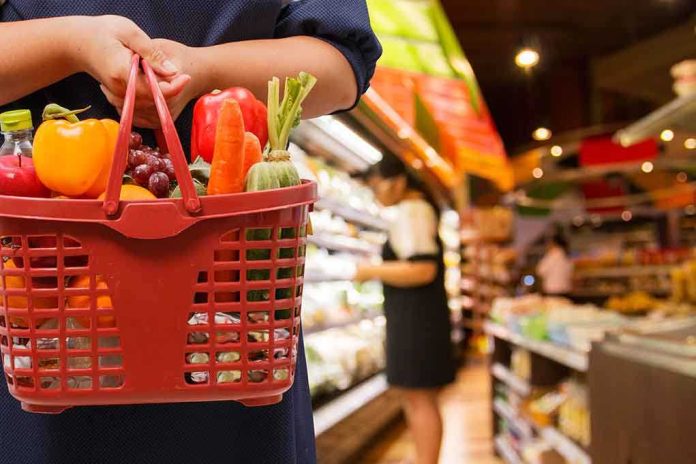
Bill Gates is bankrolling a synthetic “carbon butter” that could soon upend America’s dinner table, fueling a firestorm over the future of real food, family farms, and the nation’s values.
Story Snapshot
- Bill Gates is funding Savor’s lab-made butter, created from captured carbon and hydrogen—no cows or crops involved.
- The product is being quietly tested in restaurants now, with a consumer launch expected by 2027.
- Skepticism is high, as critics question the health, safety, and “naturalness” of engineered foods pushed by tech elites.
- The rise of synthetic foods backed by billionaires threatens traditional agriculture and could reshape the American food system.
Tech Moguls Push “Butter” Without Cows or Crops
In 2025, Illinois startup Savor, backed by Bill Gates, unveiled a lab-made butter alternative synthesized from carbon dioxide and hydrogen, with no reliance on animals or plants. Using advanced chemical processes, Savor claims their product mimics dairy fat structure and taste, but is created in tanks from basic elements instead of churned from cream. The company’s leadership, including CEO Kathleen Alexander, touts the environmental benefits and simplicity of their process, aiming to sell to major food companies and rapidly expand into restaurants and bakeries.
This innovation arrives as the food industry faces mounting pressure to decarbonize and reduce land use, with environmental activists and tech investors touting synthetic foods as a solution. Savor’s carbon butter is being trialed in select commercial kitchens, aiming for a broader retail rollout by 2027. The company’s strategy mirrors recent trends in lab-grown meats and plant-based substitutes, but this marks the first time a “butter” is made entirely from captured carbon and hydrogen. Gates’s backing brings both credibility and fierce scrutiny, especially from those wary of concentrated control over the food supply.
Public Skepticism and Cultural Backlash Intensify
Despite the marketing push, many Americans remain deeply skeptical of synthetic foods engineered by billionaires and big tech. Critics question the health impacts of consuming fats synthesized from industrial gases, citing past controversies over margarine and trans fats. Health professionals and industry experts warn that long-term effects of these novel fats are unknown, and argue that the rush to label them “clean” or “sustainable” may obscure legitimate safety concerns. The “unnatural” nature of carbon butter has sparked cultural pushback, with some voices decrying the move away from traditional, farm-based foods as an attack on American heritage and common sense.
For family farmers and rural communities, the rise of lab-made foods threatens livelihoods and centuries-old practices. As food tech startups and multinational corporations invest in synthetic ingredients, the risk grows that local agriculture could be sidelined by patented, factory-made alternatives. This shift is seen by many as undermining the self-reliance, stewardship, and connection to the land that have long defined American food and values. The debate has become a flashpoint in the broader culture war over who controls the nation’s food supply and what it means to eat “real” food in an age of engineered substitutes.
Billionaires, Bureaucrats, and the Future of Food Freedom
Gates’s involvement in Savor’s carbon butter highlights growing concerns about the concentration of power among tech elites and global corporations in shaping food policy. Proponents argue that such innovations can help address climate change, reduce emissions, and feed a growing population. However, critics counter that these solutions often come with top-down mandates, regulatory favoritism, and a “one-size-fits-all” approach that ignores local needs and personal choice. The push for synthetic foods is emblematic of a broader trend where unelected billionaires, not everyday Americans, increasingly dictate what ends up on the dinner table.
As regulatory agencies weigh the approval and labeling of artificial foods, questions remain about transparency, consumer consent, and the potential for government overreach. The shift toward engineered, patent-protected foods could erode food independence and further disconnect consumers from the sources and traditions of their meals. For many, the battle over carbon butter is not just about taste or technology—it’s about preserving the right to real food, supporting American farms, and defending a way of life rooted in common sense and constitutional values.
Sources:
Butter made from carbon tastes like the real thing, gets backing from Bill Gates
Butter made from carbon, backed by Bill Gates, being developed in Batavia, Illinois
Savor startup, Bill Gates, and the future of butter and palm oil




